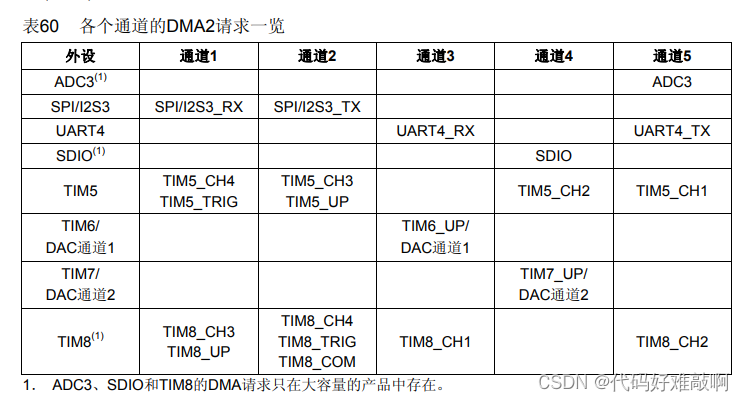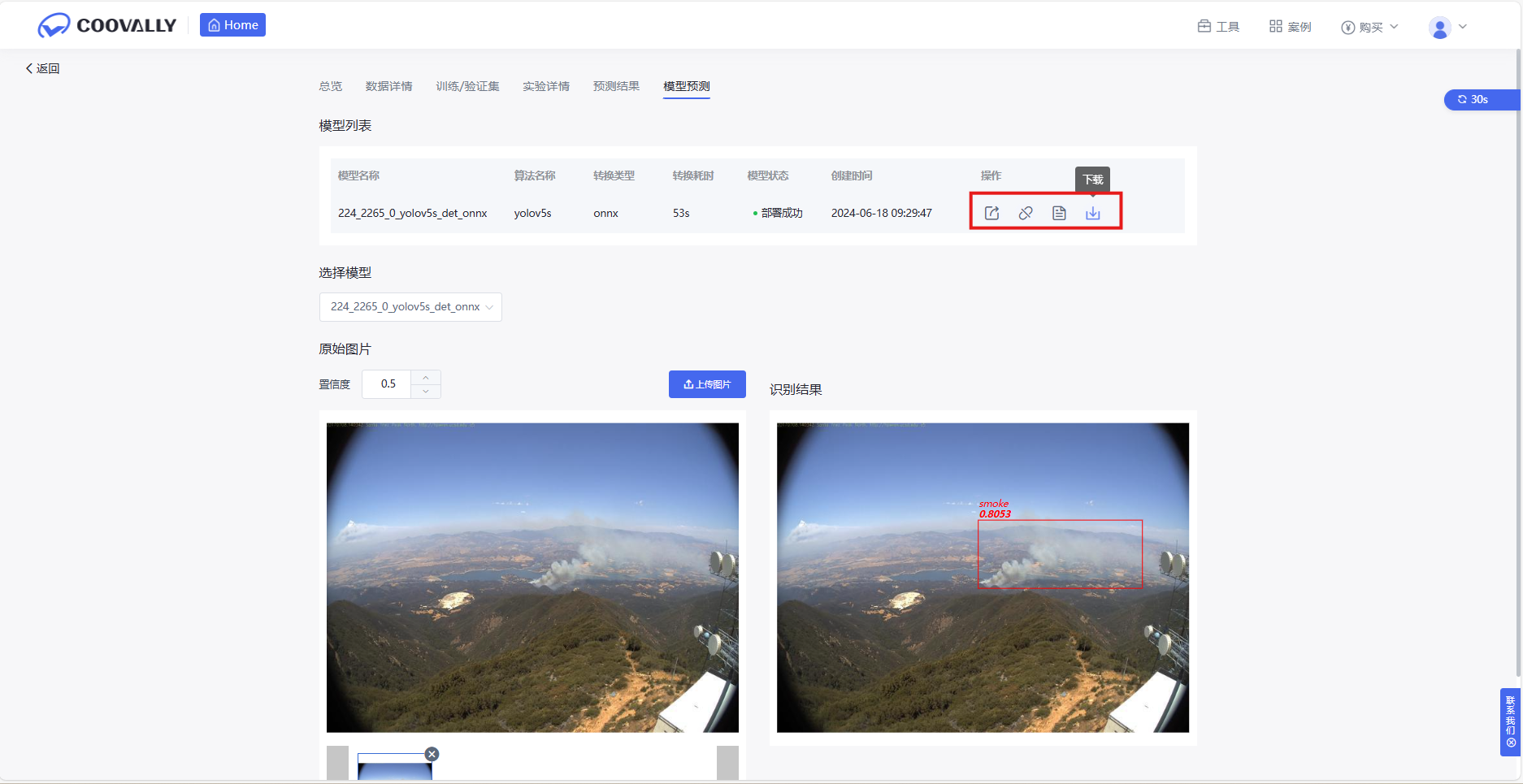本文主要是介绍基于Dragonboard 410c的燃气烟雾检测器(三),希望对大家解决编程问题提供一定的参考价值,需要的开发者们随着小编来一起学习吧!
燃气烟雾检测模块MQ-2在上篇博客中已经写好了,接下来是温湿度检测模块dht11了,模块信息在前面已经介绍过了,这里就不再赘述了,直接看程序:
#include <linux/kernel.h>
#include <linux/module.h>
#include <linux/workqueue.h>
#include <linux/slab.h>
#include <linux/input.h>
#include <linux/init.h>
#include <linux/errno.h>
#include <linux/serio.h>
#include <linux/delay.h>
#include <linux/platform_device.h>
#include <linux/clk.h>
#include <linux/wait.h>
#include <linux/sched.h>
#include <linux/cdev.h>
#include <linux/miscdevice.h>
#include <linux/fs.h>
#include <linux/of_gpio.h>
#include <linux/delay.h>
#include <linux/printk.h>
#include <linux/time.h>
#include <linux/irq.h>
#include <asm-generic/uaccess.h>
#define DEVICE_NAME "dht11"
#define DEVICE_MAJOR 0
struct dht11_sensor_dev{
int pin;
unsigned char value[5];
int signal;
int time;
int count;
dev_t devno;
struct class *dht11_class;
struct cdev cdev;
struct mutex read_data;
struct timeval lasttv;
struct timeval tv;
struct work_struct dht11_work;
};
static struct dht11_sensor_dev *dht11_dev;
static int read_byte(void){
unsigned char data;
int i = 0;
for(i = 0; i < 8; i++){
while(!gpio_get_value(dht11_dev->pin));
udelay(30);
data <<= 1;
if(gpio_get_value(dht11_dev->pin) == 1){
data |=0x01;
while(gpio_get_value(dht11_dev->pin));
}else{
data |=0x00;
}
}
return data;
}
static void dht11_read(void){
int i = 0;
dht11_dev->signal = gpio_get_value(dht11_dev->pin);
if(dht11_dev->signal == 0){
while(!gpio_get_value(dht11_dev->pin));
while(gpio_get_value(dht11_dev->pin));
for(i = 0; i < 5; i++){
dht11_dev->value[i] = read_byte();
}
}
}
static int dht11_start(void)
{
gpio_direction_output(dht11_dev->pin, 0);
msleep(20);
gpio_set_value(dht11_dev->pin,1);
udelay(20);
gpio_direction_input(dht11_dev->pin);
do_gettimeofday(&dht11_dev->lasttv);
dht11_dev->count=0;
return 0;
}
static int dht11_checksum(struct dht11_sensor_dev *dev)
{
int tmp = 0;
tmp = dev->value[0] + dev->value[1] + dev->value[2] + dev->value[3];
if((tmp != dev->value[4]) || (dev->value[4] == 0) || (tmp == 0) ){
printk(KERN_INFO "[%s] %d %d\n", __func__, dev->value[4], tmp);
return -1;
}
return 1;
}
static int dht11_sensor_open(struct inode *inode, struct file *filp)
{
printk("dht11_sensor_open\n");
return 0;
}
static ssize_t dht11_sensor_read(struct file *filp,char __user *buf,size_t
size,loff_t *f_pos)
{
int result = 0;
dht11_dev->value[0] = 0;
dht11_dev->value[1] = 0;
dht11_dev->value[2] = 0;
dht11_dev->value[3] = 0;
dht11_dev->value[4] = 0;
printk("dht11_sensor_read\n");
dht11_start();
dht11_read();
msleep(10);
result=dht11_checksum(dht11_dev);
if(result<0)
return -EAGAIN;
printk("---Humidity=%d.%d%%RH\n---Temperature=%d.%dC\n",\
dht11_dev->value[0], dht11_dev->value[1], \
dht11_dev->value[2], dht11_dev->value[3]);
result=copy_to_user(buf,&dht11_dev->value,4);
if(result<0)
{
printk("copy to user err\n");
return -EAGAIN;
}
return result;
}
static int dht11_sensor_release(struct inode *inode,struct file *filp)
{
module_put(THIS_MODULE);
return 0;
}
static struct file_operations dht11_sensor_fops={
.owner = THIS_MODULE,
.open = dht11_sensor_open,
.read = dht11_sensor_read,
.release = dht11_sensor_release,
};
//static int dht11_gpio_init(void)
static int parse_dt (struct platform_device *pdev,struct dht11_sensor_dev *data){
int result;
struct device_node *node = pdev->dev.of_node;
data->pin = of_get_named_gpio(node,"thunder,gpio_data",0);
if(gpio_is_valid(data->pin)){
result=gpio_request(data->pin, "dht11_gpio");
if(result)
{
printk(KERN_INFO "[%s] gpio_request \n", __func__);
return -1;
}
gpio_direction_output(data->pin,1);
}
return 0;
}
static int dht11_sensor_setup_cdev(void)
{
int ret;
cdev_init(&(dht11_dev->cdev), &dht11_sensor_fops);
dht11_dev->cdev.owner = THIS_MODULE;
ret=cdev_add(&(dht11_dev->cdev),dht11_dev->devno, 1);
if(ret)
{
printk(KERN_NOTICE"erro %d adding %s\n",ret,DEVICE_NAME);
}
return ret;
}
static int dht11_probe(struct platform_device *pdev){
int result;
dht11_dev=kmalloc(sizeof(struct dht11_sensor_dev),GFP_KERNEL);
if(!dht11_dev)
{
result=-ENOMEM;
goto allocate_memory_fail;
}
if(DEVICE_MAJOR)
{
result = register_chrdev_region(dht11_dev->devno, 1, DEVICE_NAME);
}
else
{
result = alloc_chrdev_region(&dht11_dev->devno, 0, 1, DEVICE_NAME);
}
if(result < 0)
{
printk("register_chrdev_region err!\n");
goto chardev_region_fail;
}
dht11_dev->dht11_class = class_create(THIS_MODULE, DEVICE_NAME);
if(IS_ERR(dht11_dev->dht11_class))
{
printk("Err: failed in creating class.\n");
goto class_create_fail;
}
device_create(dht11_dev->dht11_class, NULL,dht11_dev->devno, NULL,
DEVICE_NAME);
result = parse_dt(pdev,dht11_dev);
if(result<0)
goto gpio_request_fail;
result=dht11_sensor_setup_cdev();
if(result<0)
goto cdev_fail;
mutex_init(&dht11_dev->read_data);
printk("dht11 init ok!\n");
return 0;
gpio_request_fail:
cdev_del(&dht11_dev->cdev);
cdev_fail:
device_destroy(dht11_dev->dht11_class,dht11_dev->devno);
class_destroy(dht11_dev->dht11_class);
class_create_fail:
unregister_chrdev_region(dht11_dev->devno,1);
chardev_region_fail:
allocate_memory_fail:
kfree(dht11_dev);
return result;
}
static int dht11_remove(struct platform_device *pdev)
{
cdev_del(&dht11_dev->cdev);
device_destroy(dht11_dev->dht11_class,dht11_dev->devno);
class_destroy(dht11_dev->dht11_class);
unregister_chrdev_region(dht11_dev->devno, 1);
kfree(dht11_dev);
return 0;
}
static struct of_device_id dht11_match_table[] = {
{ .compatible = "thunder,dht11",},
{ },
};
static struct platform_driver dht11_driver = {
.probe = dht11_probe,
.remove = dht11_remove,
.driver = {
.owner = THIS_MODULE,
.name = DEVICE_NAME,
.of_match_table = dht11_match_table,
},
};
module_platform_driver(dht11_driver);
MODULE_AUTHOR("wi");
MODULE_DESCRIPTION("DHT11 Driver");
MODULE_LICENSE("GPL");
这个模块用的是单总线,所以时序要特别注意一下,设备节点:/dev/dht11
为了检测数据的正确性,以及节点是否可用,写了下面一个小程序进行测试:
#include <stdio.h>
#include <sys/types.h>
#include <sys/stat.h>
#include <fcntl.h>
#include <unistd.h>
#include <errno.h>
#include <string.h>
int main(){
int fd;
int ret;
int i = 0;
unsigned char buf[4];
fd = open("/dev/dht11", O_RDONLY);
if(fd < 0){
printf("open the dht11 id failed\n");
return fd;
}
ret = read(fd, buf, 4);
if(ret < 0){ //下面三个输出可以了解一下,对于打开,读写节点失败的调试很有帮助的。
printf("errno= %d\n", errno);
printf("Mesg----%s\n",strerror(errno));
perror("read failed");
return ret;
}
printf("---Humidity=%d.%d%%RH\n---Temperature=%d.%dC\n", buf[0], buf[1], buf[2], buf[3]);
close(fd);
return 0;
}
经过测试是没有问题的。到此温湿度检测模块dht11的底层驱动也完成了。
这篇关于基于Dragonboard 410c的燃气烟雾检测器(三)的文章就介绍到这儿,希望我们推荐的文章对编程师们有所帮助!









